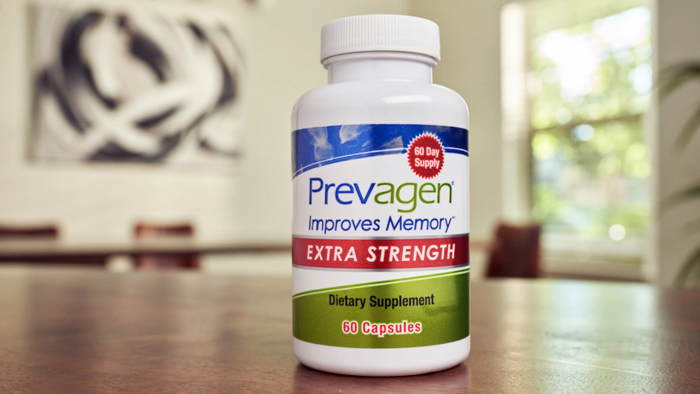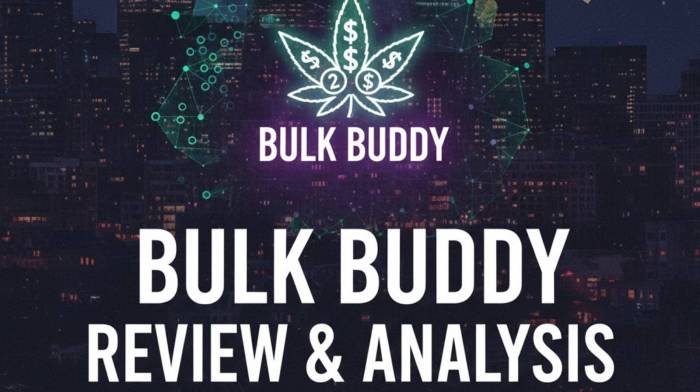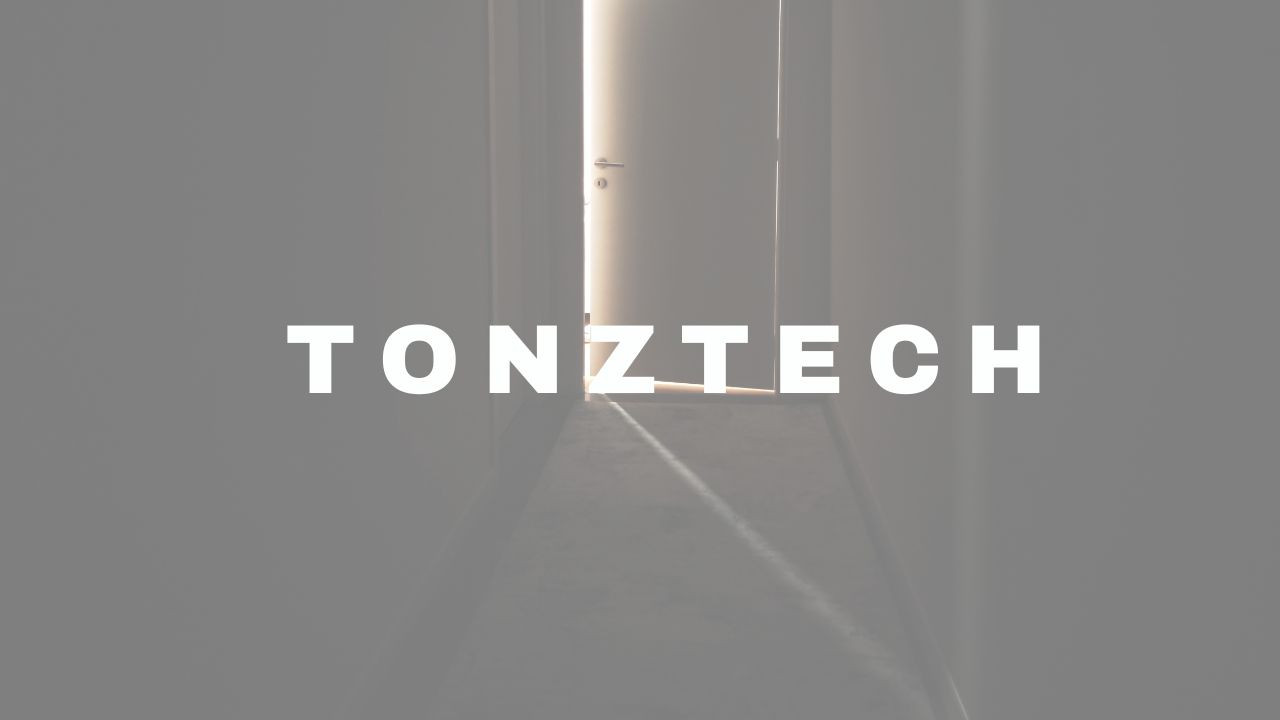Marketed as a breakthrough for mental clarity and sharper focus, it promises to help with forgetfulness and age-related cognitive decline. But does it truly live up to those claims, or is it just another overhyped capsule?
What the Product Claims
This supplement is formulated with apoaequorin, a protein originally discovered in jellyfish. The makers claim it supports healthy brain function by maintaining calcium balance within brain cells, a process believed to play a role in memory and communication between neurons.
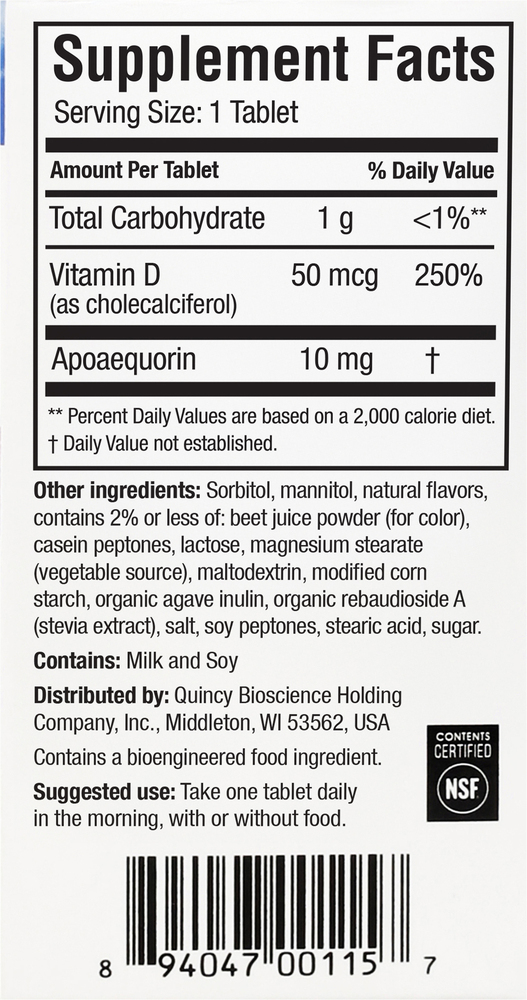
Advertisements often highlight improvements in recall, concentration, and alertness with consistent use. It’s typically recommended for adults over 40 who notice occasional memory lapses or reduced mental sharpness. While the idea behind it sounds promising, scientists remain divided on whether such a protein can actually survive digestion and reach the brain to produce any real benefit.
Marketing and Formulations
The product is available in multiple strengths, including Regular (10 mg), Extra (20 mg), and Chewable options. It’s sold online, in pharmacies, and in major retail stores, often placed alongside other popular brain supplements.
Over the years, its advertising has drawn scrutiny from health organizations for making unproven claims about memory enhancement. Although the company later toned down its language, the supplement continues to be widely promoted as a non-prescription option for cognitive support.
Ingredients and How They’re Used
Each capsule primarily contains the active protein apoaequorin, supported by ingredients such as rice flour and magnesium stearate. The formulation is designed for daily use, one capsule per day, with or without food.
Users are advised to take it consistently for at least a few weeks before expecting noticeable results. Many individuals who try it report varying experiences, with outcomes often depending on age, health condition, and lifestyle factors like diet, sleep, and stress management.
Price and Accessibility
A 30-day supply generally costs between $40 and $70, depending on the strength and version. While easily available over the counter, it remains one of the pricier brain supplements in its category, especially for long-term use.
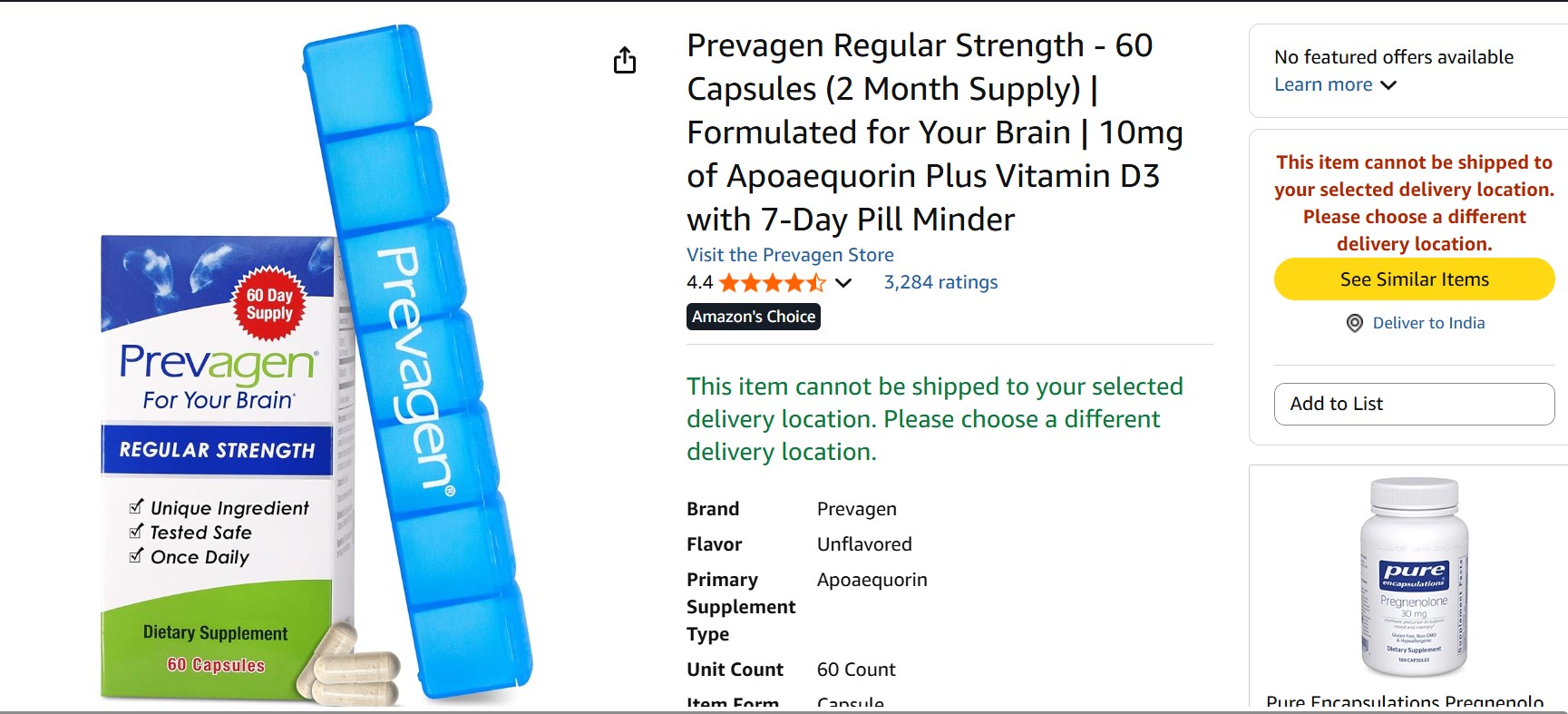
Despite the high price tag, its popularity persists mainly due to heavy marketing and the growing public interest in memory-enhancing products.
What Users Are Saying Online
To get a realistic picture of performance, looking at verified customer experiences provides useful insight.
- Some users report mild improvements in mental clarity and recall after regular use, calling it “subtle but noticeable.” Others, however, say it made no difference even after completing multiple bottles. A few reviewers mention that any improvement they felt might have been psychological rather than physical, while others appreciated that it didn’t cause side effects.But made them super addicted.
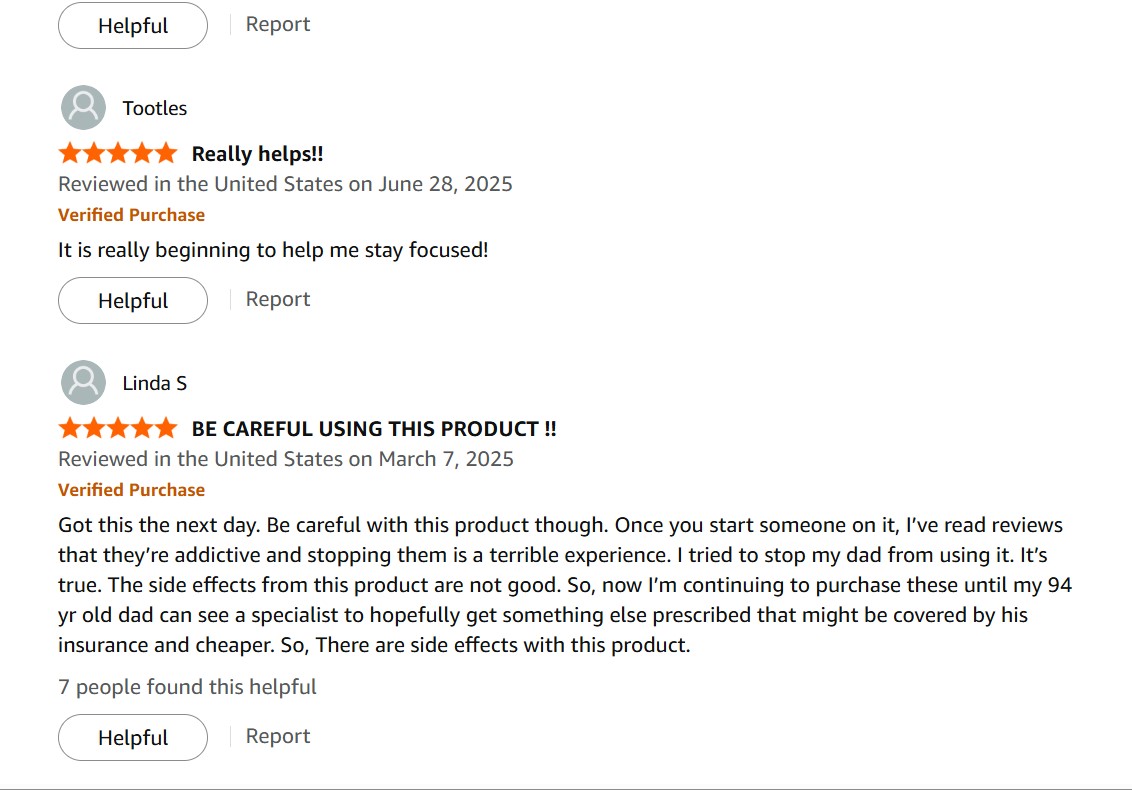
- Conversations in medical and wellness communities are generally skeptical. Many healthcare professionals and experienced users describe it as “expensive and overrated”, noting that its scientific backing is thin.
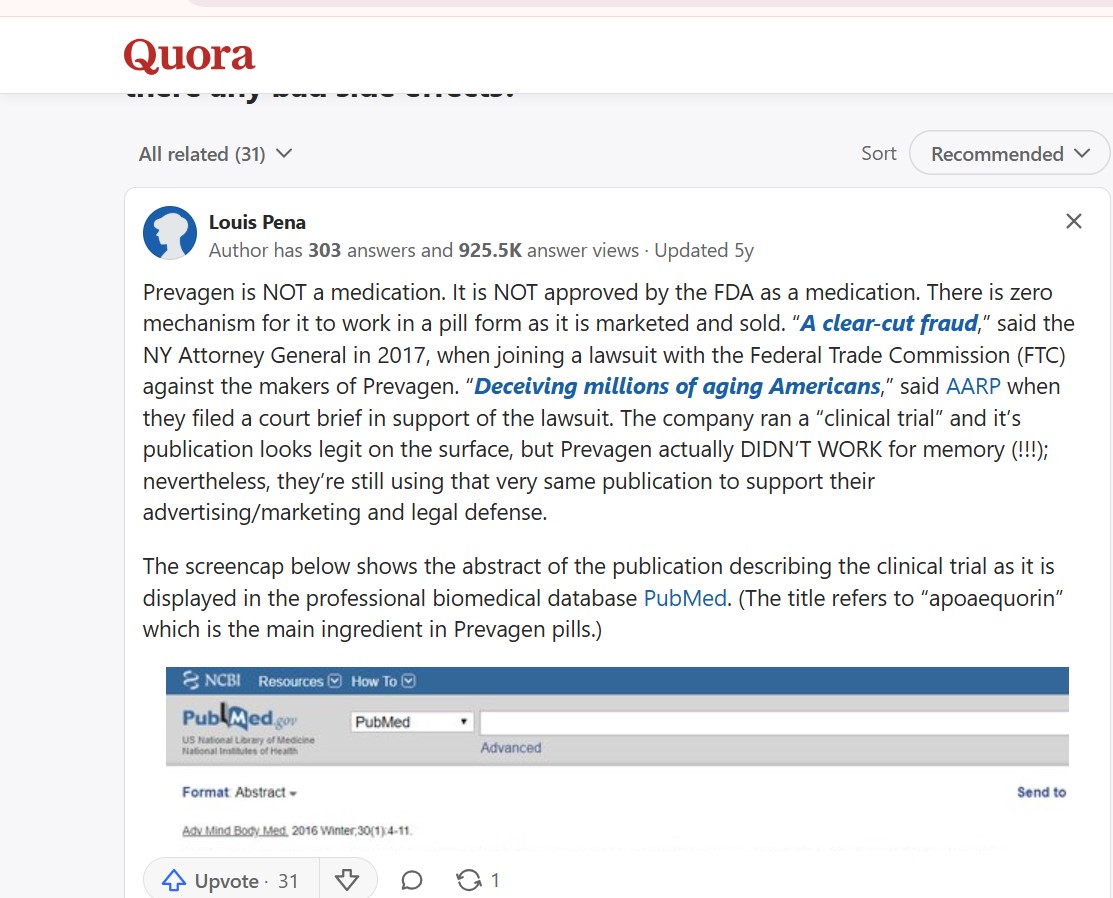
- One doctor in a family medicine discussion commented: “I’ve had several patients try it with no measurable improvement.” Another user wrote: “It may help a few people, but it’s mostly marketing, not medicine.”
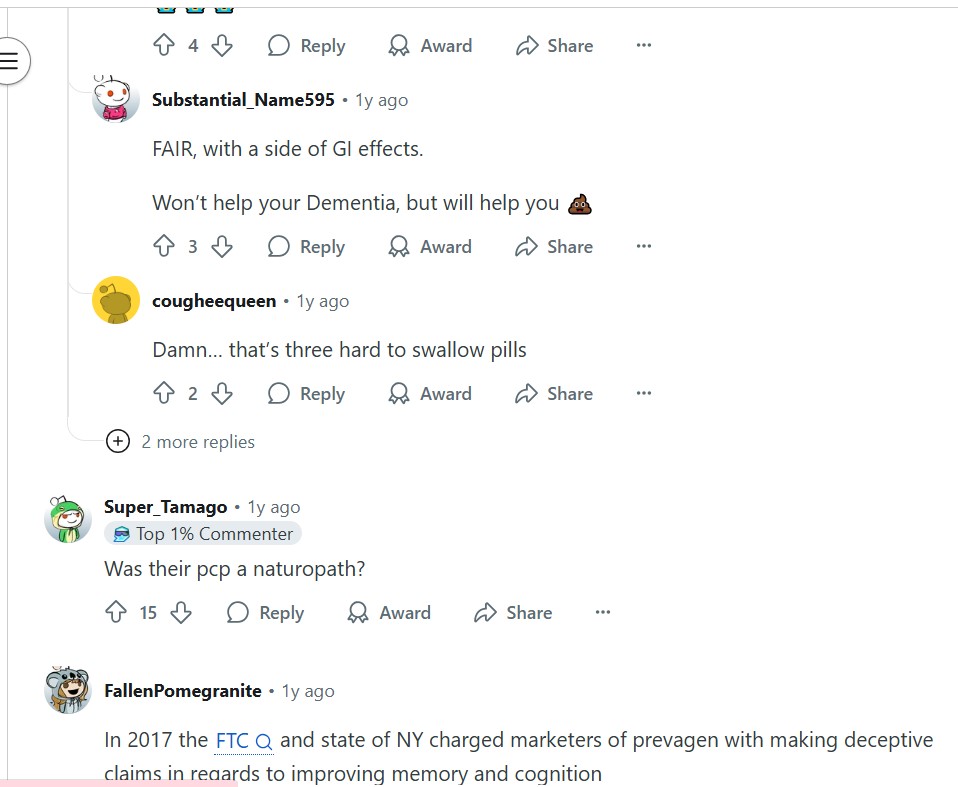
Overall, public feedback reflects mixed outcomes. A small number of users report benefits, while the majority feel no significant change in memory or focus.
Scientific Evidence and Real-World Results
Research on the supplement’s effectiveness is limited. The company behind it cites internal studies suggesting memory improvements, but independent investigations have not confirmed these results.
Many experts argue that the protein used likely breaks down during digestion, preventing it from affecting the brain in the way the brand claims. For now, the scientific community sees the evidence as inconclusive, meaning any improvement experienced by users might be subjective or due to lifestyle factors rather than the supplement itself.
Safety and Precautions
Most users tolerate the supplement well, and side effects are relatively uncommon. A few have reported minor symptoms such as headache, dizziness, or nausea, but these appear rare.
Still, anyone with neurological or cardiovascular conditions should speak with a healthcare provider before starting. Because dietary supplements aren’t regulated as strictly as prescription drugs, it’s always advisable to buy from trusted sources and avoid combining multiple brain-boosting products.
Final Verdict
After analyzing its composition, available studies, and genuine user feedback, it becomes clear that this supplement is far from a guaranteed solution for memory improvement. While a handful of users claim better focus or recall, scientific evidence doesn’t strongly support those results.
At best, it may provide a mild mental boost for some individuals, but expecting dramatic changes would likely lead to disappointment. For those genuinely concerned about cognitive health, consistent sleep, balanced nutrition, physical activity, and mental engagement remain far more effective and proven ways to support brain function.
In short, this memory supplement sits somewhere between hopeful science and clever marketing, safe to try for curiosity’s sake, but not something to rely on for measurable improvement.
